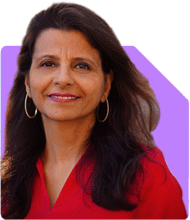Gaurav Pawar | Answer |Ask -Follow
Personal Trainer, Nutritionist - Answered on Jan 18, 2023
He is the founder and CEO of It's All About Journey, a company he created in 2017. It offers a comprehensive fitness programme that blends the principles of diet, workout and mindset to encourage a healthy mind, heart and body.... more

Dear Gaurav I am 25 yrs and my height is 5 ft 6 in. My current weight is 82 kg. I am borderline diabetic. I want to lose 20 kg this year. Can you pls suggest some exercises I can start to lose weight?
First of all just exercise is not gonna help you out to lose weight and on top of that you are on border of being diebetic so correcting your nutrition should be the first priority. Now talking about nutrition I can't suggest you anything without having knowledge of your body's hormonal state. I will suggest you for personal consultation so that I can help you out properly.
You may like to see similar questions and answers below
Komal Jethmalani | Answer |Ask -Follow
Dietician, Diabetes Expert - Answered on Feb 02, 2022
Komal Jethmalani | Answer |Ask -Follow
Dietician, Diabetes Expert - Answered on Nov 11, 2020
Komal Jethmalani | Answer |Ask -Follow
Dietician, Diabetes Expert - Answered on Jan 21, 2022
Komal Jethmalani | Answer |Ask -Follow
Dietician, Diabetes Expert - Answered on Apr 13, 2023
Dr Shakeeb Ahmed Khan |184 Answers |Ask -Follow
Physiotherapist - Answered on Nov 19, 2024
Reetika Sharma |459 Answers |Ask -Follow
Financial Planner, MF and Insurance Expert - Answered on Dec 24, 2025
Reetika Sharma |459 Answers |Ask -Follow
Financial Planner, MF and Insurance Expert - Answered on Dec 24, 2025
Reetika Sharma |459 Answers |Ask -Follow
Financial Planner, MF and Insurance Expert - Answered on Dec 24, 2025
Reetika Sharma |459 Answers |Ask -Follow
Financial Planner, MF and Insurance Expert - Answered on Dec 24, 2025
Reetika Sharma |459 Answers |Ask -Follow
Financial Planner, MF and Insurance Expert - Answered on Dec 24, 2025
Reetika Sharma |459 Answers |Ask -Follow
Financial Planner, MF and Insurance Expert - Answered on Dec 24, 2025
Reetika Sharma |459 Answers |Ask -Follow
Financial Planner, MF and Insurance Expert - Answered on Dec 24, 2025
Reetika Sharma |459 Answers |Ask -Follow
Financial Planner, MF and Insurance Expert - Answered on Dec 24, 2025
Reetika Sharma |459 Answers |Ask -Follow
Financial Planner, MF and Insurance Expert - Answered on Dec 24, 2025
Reetika Sharma |459 Answers |Ask -Follow
Financial Planner, MF and Insurance Expert - Answered on Dec 24, 2025























